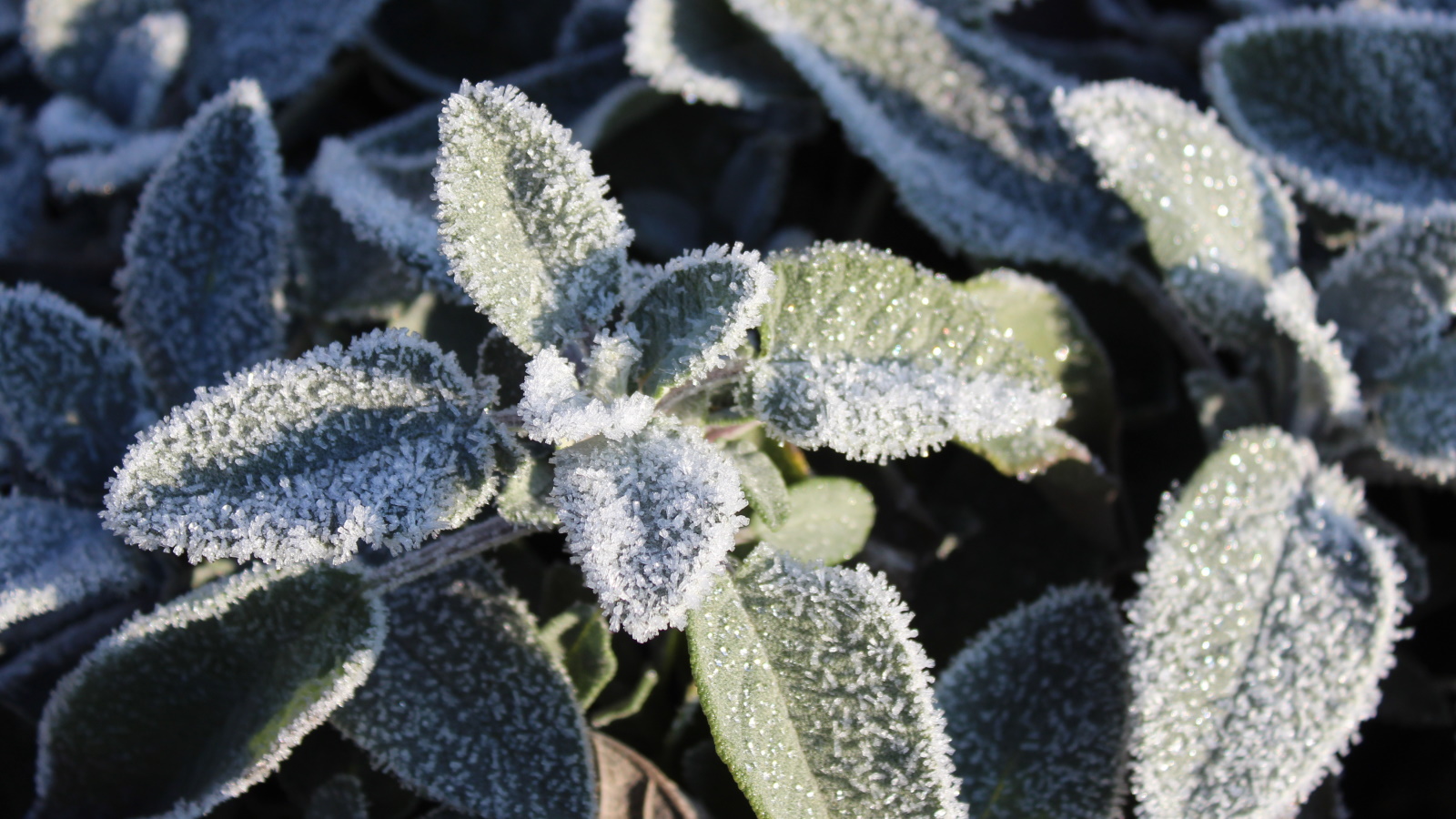
The dropping temperatures of fall are a reminder to start thinking about preparing your garden for the frostiest season ahead - from trees, to perennials and edible plants, it's important to find ways to help them survive the harshest season.
With so much to get done on your fall gardening checklist, sometimes you can't afford to waste time overwintering a garden where it doesn't need to be. This includes spending time winterizing your herb garden full of herbs that can actually withstand frost and will return again having had minimal protection through winter.
'Hardy perennial herbs don't need winterizing,' says Greg Peterson, food growing expert from The Urban Farm. 'If you have never heard the word perennial, they are plants that return year-on-year, surviving cold winters and hot summers,' he explains. So, there's not necessarily a need to winterize the herbs that can survive the coldest conditions of your local climate - here are five to leave alone this winter:
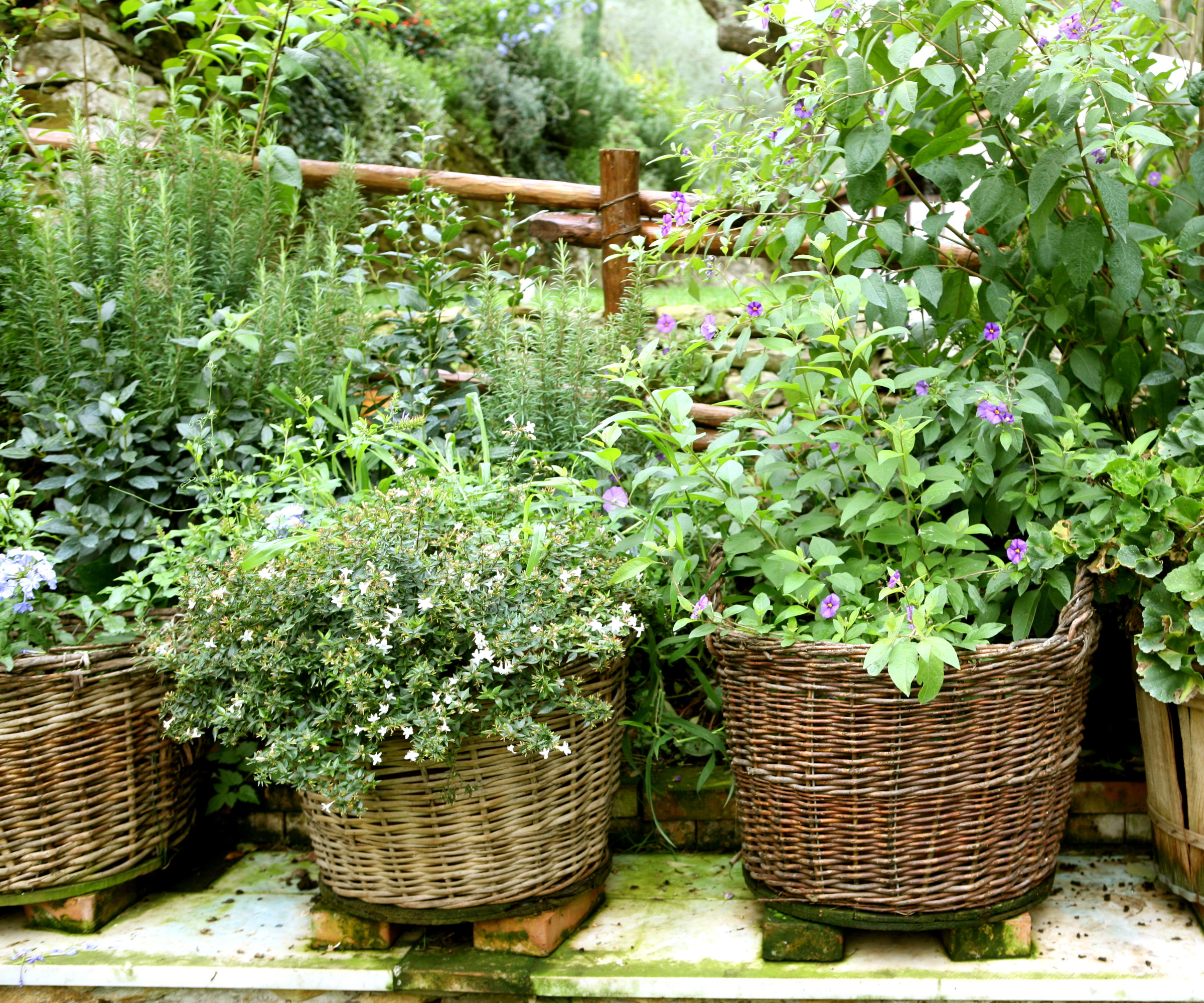
5 herbs you don't need to winterize
While it is important to put precautions in place for tender herbs, such moving them indoors and mulching to insulate roots, the below list of herbs are much hardier to freezing temperatures. Having said that, always keep an eye on local forecasts and protect your plants from frost if temperatures are dropping lower than what they can tolerate. Generally speaking, though, these five herbs don't always need winterizing and will return with new growth on the other side of the winter season.
1. Chives
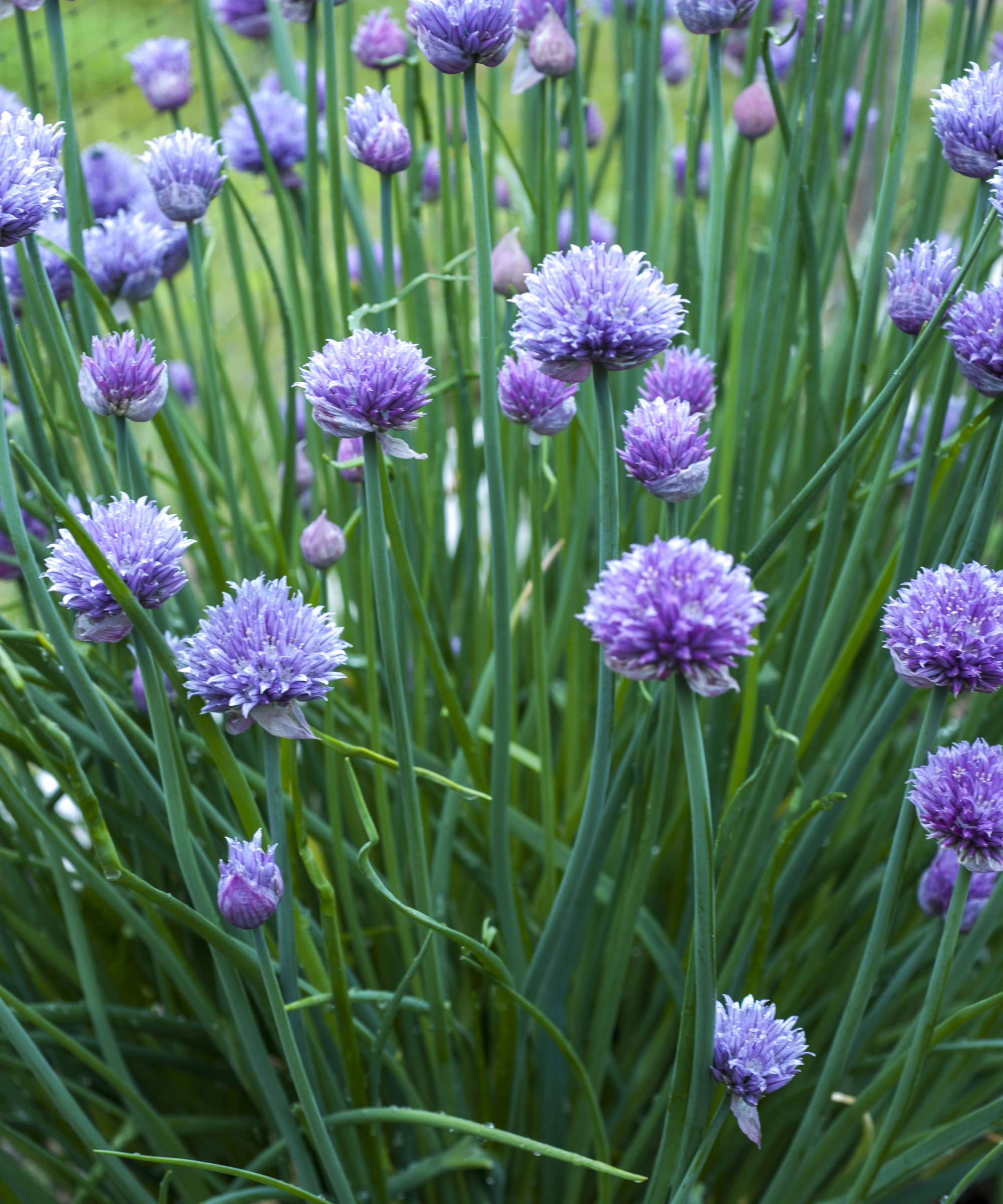
Hardy to US hardiness zone three to zone nine, growing chives not only rewards you with a flavorful herb to cook with, but also charming purple allium flowers to enjoy in spring and summer. After harvesting your chives from spring to fall, you can remove any faded flowers before neglecting it through winter.
'They can tolerate frost down to 13°F without any issue, so you needn’t worry about protecting these herbs against cold damage,' says Lotte Berendsen, a certified botanist from the PlantIn app. 'A thin layer of mulch may be helpful to ensure your chives perk up faster once temperatures rise again, but it's not essential,' she adds.
If you want to enjoy homegrown chives throughout winter, you can keep them productive by moving them to your indoor herb garden. This is only best to do if you are already growing herbs in pots and can easily move them, as it leaves their roots undisturbed.
2. Rosemary
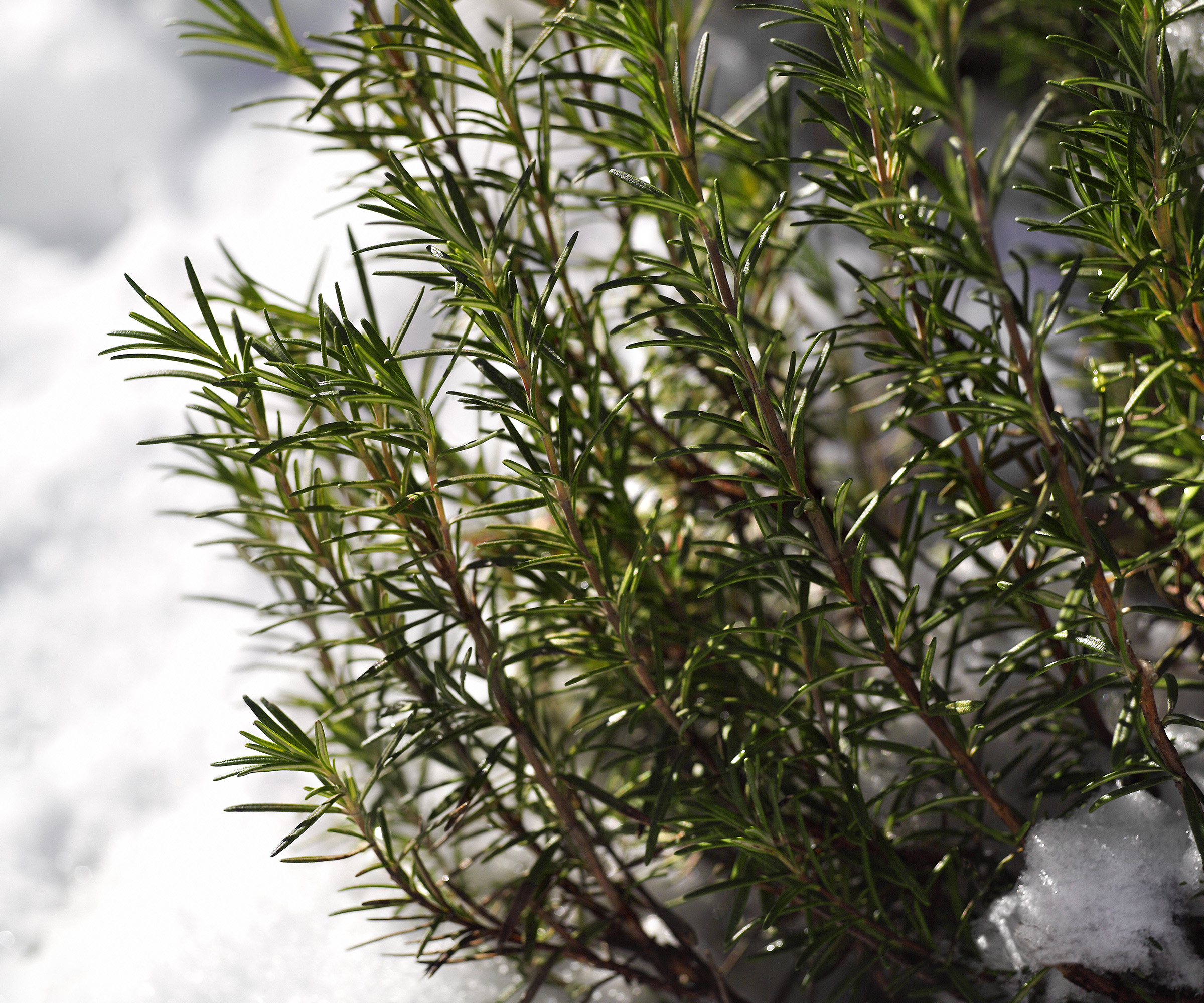
Tolerating as low as 14°F and growing across US hardiness zone six to zone nine, rosemary will generally tolerate mild frosty conditions. It's wise to prune rosemary during it's active growth season, both to harvest it and encourage fuller growth. Avoid pruning during frosty weather, as it can expose more tender, new growth to damage.
'The first herb that comes to mind when thinking about frost-hardiness is rosemary. I've had this growing in my gardens for a few years and it seems to thrive even when night time temperatures drop below freezing,' notes Annette Hird, expert gardener at Easy Urban Gardens.
Older rosemary plants tend to be more frost-hardy than younger ones. Likewise, if you're growing rosemary in a climate where temperatures drop below 14°F, its best to cover younger rosemary to ensure it doesn't die back during winter - these plant cloches from Amazon work well to keep the too-cold temperatures out.
3. Oregano
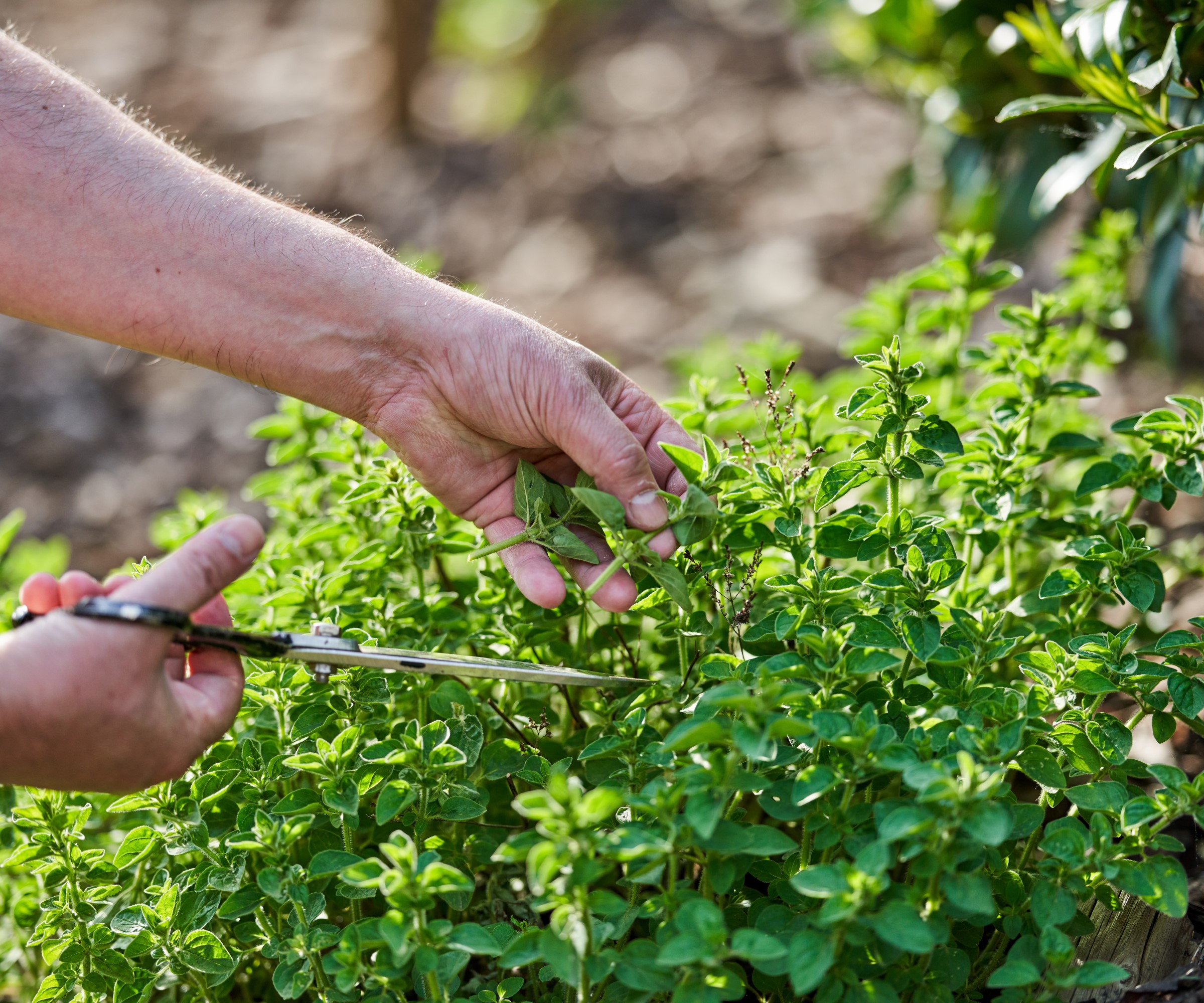
For those living in US hardiness zone four to zone eight and growing oregano, you can save some overwintering effort, as these peppery plants can survive winter if grown in the right conditions.
To help your oregano get through the winter season, it's wise to plant it in a sunny and warmer spot in the first place. This will also encourage more growth during it's active season, so you can cut oregano so it keeps growing.
'I find my plant even continues to put on new growth through the colder months. I usually wait until early spring to give it a clip back and to tidy up the extensive growth,' notes Annette.
4. Sage
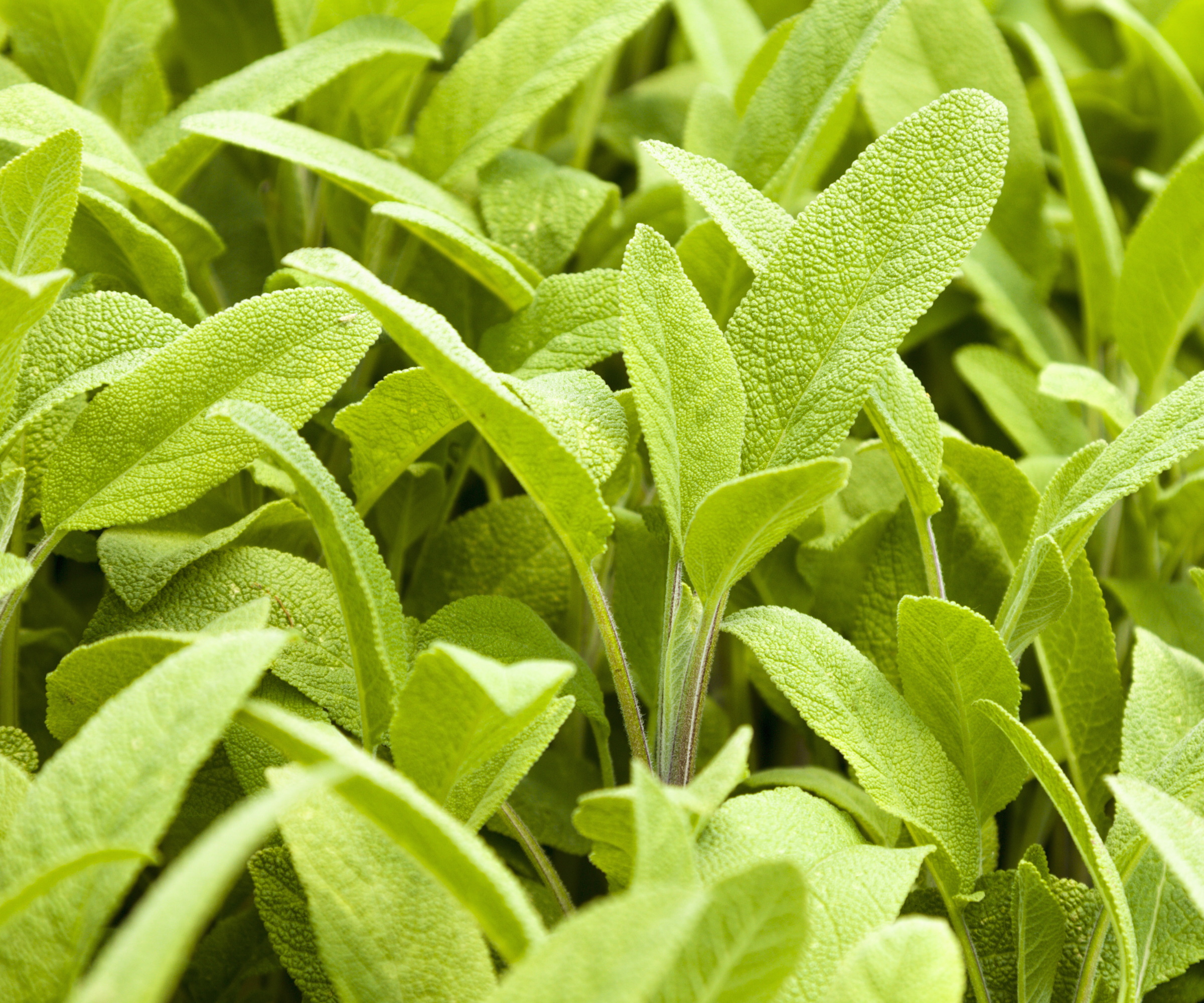
Those who grow sage will know it's one of the best plants to have in a fragrant garden. This aromatic herb is hardy across US hardiness zone four to zone 10, making it versatile in a range of climates.
Sage varieties tend to survive temperatures down to 15°F without protection. 'You may apply mulch around your sage plants to ensure the roots are not completely frozen during the colder months, but you just need to trim back any dead leaves in early spring to promote healthy new growth,' says Lotte.
If you do choose to mulch any of your herbs, you can use these mulch chips from Amazon. Alternatively, use fallen leaves to make your own mulch.
5. Russian tarragon
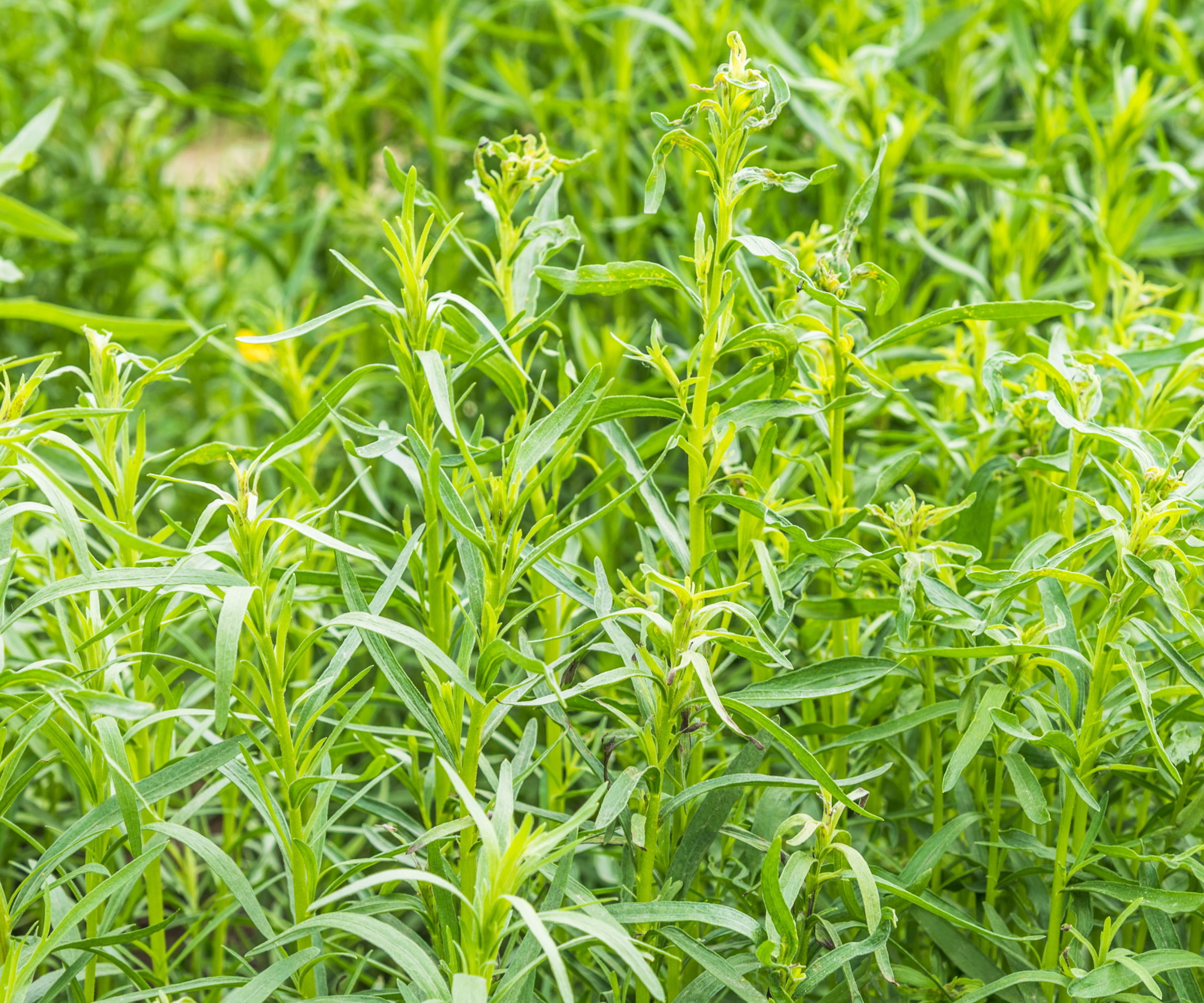
A more unusual herb, but one that certainly uplifts any kitchen garden, Russian tarragon has a bittersweet taste. This vigorous herb grows across US hardiness zone four to zone nine, tolerating some frosty conditions.
After actively growing from spring to fall, the top of Russian tarragon may die back in winter. You can then cut it back in early spring, ahead of new growth. When doing this, make sure to use essential pruning tools - like these gardening scissors from Amazon.
If you're growing French tarragon, however, you will need to overwinter it. This variety of tarragon isn't as hardy and can be killed off in frost. For this reason, opt for growing it in a container and moving it to a sheltered position for winter.
FAQs
Should I wrap my potted herbs for winter?
Although many herbs are frost-hardy and don't necessarily require overwintering, it's true that even potted hardy herbs need some extra care.
'Potted plants’ roots are much more sensitive to frosts, as they do not have the warmth and moisture of the soil around them as plants that live in the full ground do,' explains Lotte Berendsen, a certified botanist from the PlantIn app.
Wrapping them with this burlap from Amazon is wise, or bring them indoors to keep them warm. This will stop their roots freezing, which can kill off the plant.
If you want to keep these herbs productive during the colder season, bring them indoors or grow herbs in a greenhouse. This will keep them warm enough to keep growing, so you can continue harvesting them beyond their usual active growth season. No matter what you decide to do with your herbs during the frostier weather, just take care to keep an eye on the local weather forecast and protect them if temperatures drop below what they can tolerate.







